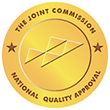Facilitated by doctorate-level staff, Recovery Keys’ Tobacco Cessation Group meets regularly to discuss ways to reduce nicotine use and cope with nicotine cravings. Patients are offered a combination of tobacco cessation methods that studies have shown are effective in helping people quit smoking, including:
- Health education and motivational interviewing, in which people explore and resolve their uncertainties about giving up smoking and changing their behavior.
- Information about nicotine replacement therapy, such as gums, patches, tablets, lozenges and sprays, and how these can be used to lessen nicotine withdrawal symptoms until patients are ready to go nicotine free.
- Meeting with the addiction medicine physician.
- Self-hypnosis for relaxation, managing anxiety and affirming the desire to quit smoking.
- Biofeedback with stress management breathing techniques.
- Relaxation and imagery procedures to reduce smoking urges.
Quitting Smoking While in Rehab Can Strengthen Sobriety
Quitting smoking is one of the best things anyone can do for their health and longevity. But did you know that giving up tobacco can also help in maintaining long-term sobriety?A common myth is that quitting smoking while in rehab and early recovery can jeopardize sobriety by forcing an individual to make too many changes at once. Cigarettes, the old way of thinking goes, offer recovering addicts a stress reliever and substitute for the drugs or alcohol.
At Recovery Keys, we have found that continuing to smoke or use tobacco products does not strengthen recovery – and in fact the opposite may be true.
Smoking cigarettes can be a trigger for drug and alcohol use. Many people addicted to drugs or alcohol smoked cigarettes at the same time or in the same social situations in which they were using alcohol and drugs – so one becomes associated with the other.
Nicotine also stimulates the brain’s reward center, causing the release of the neurotransmitter dopamine and producing feelings of pleasure. Drugs and alcohol also alter levels of dopamine, fueling the addiction. One of the goals of addiction treatment is to get dopamine-altering substances out of the body, and restore balance to the brain’s reward system. Cigarettes interfere with that process by keeping the brain’s reward system keyed up by nicotine.
Overcoming the Fear of Quitting Smoking
 Even if you want to quit smoking, it can be difficult, and even scary, to resolve to give up cigarettes. You may ask yourself, what will you do without cigarettes for comfort, for company when you’re lonely, and for stress relief?
Even if you want to quit smoking, it can be difficult, and even scary, to resolve to give up cigarettes. You may ask yourself, what will you do without cigarettes for comfort, for company when you’re lonely, and for stress relief?
It’s common for smokers to feel scared about life without tobacco products. In the Tobacco Cessation Group, participants provide support for each other in finding healthier alternatives to cigarettes.
We encourage smokers to combine methods for an individualized tobacco cessation experience. Meeting with our experienced team of physicians can also be helpful. Participants keep daily smoking cessation logs to record smoking urges, attempts to stop smoking and skills used to stop smoking. Blood pressure, pulse and ventilation are monitored, allowing participants to see how quitting smoking starts to benefit their health almost immediately.
Health Benefits of Quitting Smoking – During Rehab or Anytime
Smoking causes 480,000 deaths a year in the United States. As soon as you go tobacco free, your body will start to repair the damage from tobacco and the other chemicals contained in cigarettes. After one day, carbon monoxide levels return to normal, and blood pressure and heart rate normalize. After a few months, circulation and lung function improve. After five years, the risk of cancer of the mouth, throat and esophagus drop by half.
Quitting smoking is for health, good for overall wellbeing and good for sobriety!



















